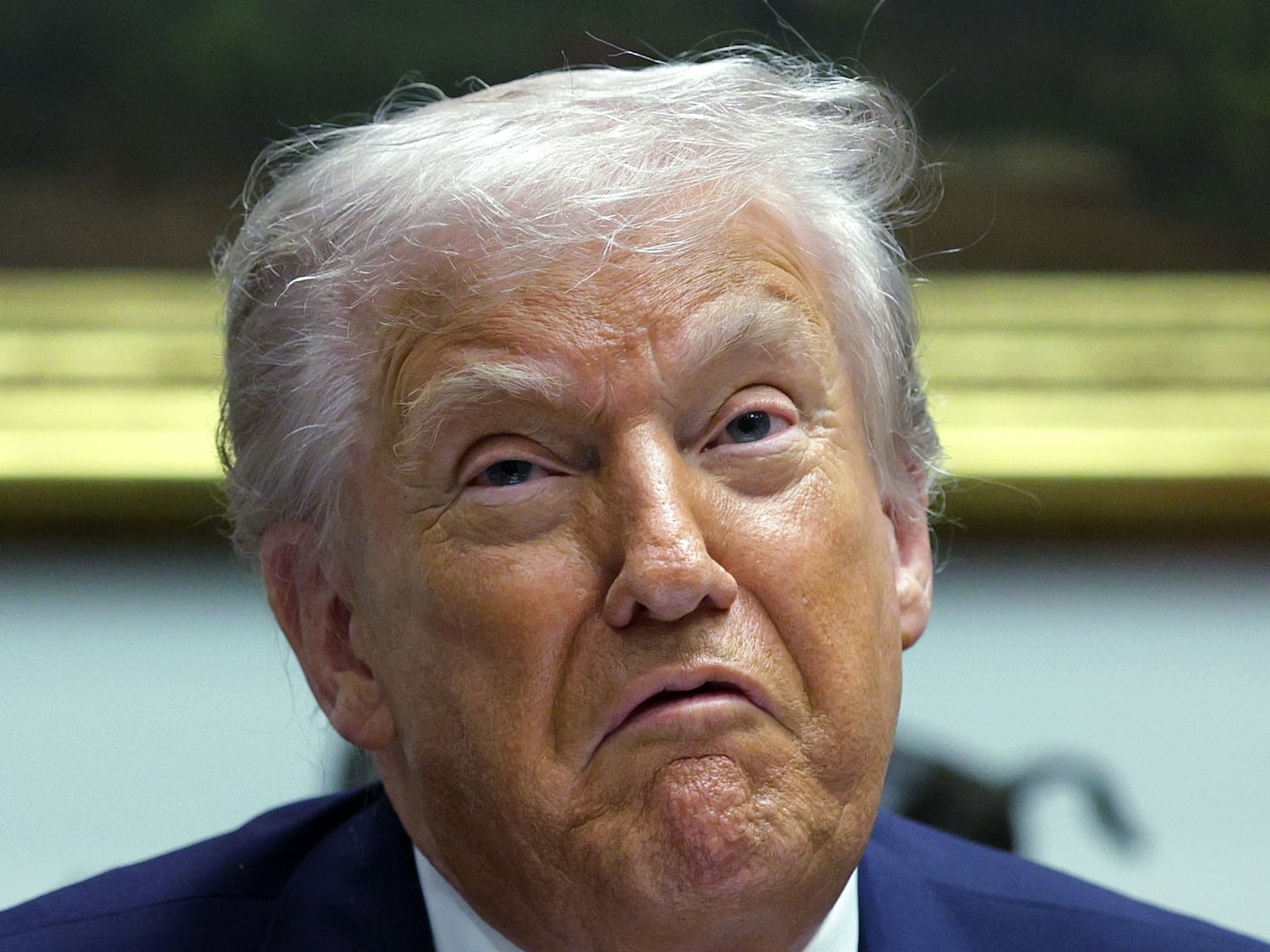DETROIT—The Motor City’s day of financial reckoning has come. Michigan Gov. Rick Snyder formally announced what had long been expected: that Detroit is in a financial emergency, which allows him to appoint an emergency financial manager to take control of the city’s finances, possibly as soon as the end of the month. Snyder, a Republican, made the official announcement today at Wayne State University, speaking under a banner that read: “Detroit Can’t Wait.”

“A lot of the things we’re talking about today could’ve been done in the last decade or even two or three decades in some cases,” Snyder told The Daily Beast after the announcement. “Now, it’s to the point where an emergency manager is really what’s needed. We do need to solve these problems. I want to give the mayor and the city council credit, because they have worked on plans and there have been ideas. But they weren’t going to be sufficient enough to solve the problem. Let’s bring more resources, and let’s resolve these issues.”
Detroit has struggled to maintain its tax base and services as its population has plunged—the city lost 200,000 residents between 2000 and 2010, which made Michigan the only state to lose population over the decade even as the national population grew by nearly 10 percent. Since 1970 the Motor City’s population has been halved, from 1.5 million to less than 700,000 in 2012, and more than one in five lots in the 139-square-mile city are vacant.
State law allows the governor to bring in an emergency manager to take control of a city’s finances—and even cancel or renegotiate some contracts and take control of pension funds and public assets—without having to deal with most of the oversight and bureaucracy of local elected officials. The city’s struggling public school system has been under emergency management since 2008. Detroit entered into a consent agreement with the state in April 2012 that was supposed to stem the need for an emergency manager but instead led to increased bickering and obstruction from local officials, who have been bitterly opposed to the prospect of a state takeover but have wrestled with one another over competing plans to stabilize the city.
The final straw came three weeks ago when the state’s last olive branch—an offer to take over the struggling Belle Isle Park—was taken off of the table after the council stalled on voting on it after repeated warnings from Snyder. Detroit Mayor Dave Bing, a Democrat, leaked the emergency-manager decision to the media late Thursday evening, and he, along with the nine council members, was not in attendance at the announcement.
The cities of Benton Harbor, Flint, and Pontiac and the Detroit enclaves Highland Park and Ecorse have come under emergency management in the past decade, with at best mixed results. But Detroit’s population is larger than all those cities combined, and Snyder, who took office last year, had hesitated to be the white, Republican governor who claimed control over the heavily black, Democratic city. By acting now, though, he’s likely to have appointed a manager before a new state law takes effect in March that would give the city more say in choosing how to respond to the determination of a financial emergency.
“The governor has made his decision, and it was his decision alone to make,” Bing said in a televised statement. “While I respect it, I have said all along that I do not favor an emergency manager for the city of Detroit. I will look at the impact of the governor’s decision, as well as other options, to determine my next course of action.”
But even with the appointment of an emergency manager, the prospect of municipal bankruptcy still looms as a possibility. If that were to occur, Detroit—with a population of 714,000 and an estimated $14 billion in long-term debt—would easily be the largest U.S. city ever to file for bankruptcy, which could cause catastrophic damage to a city that has been fighting to recover from the recession and years of incompetence and corruption.
“The short-term issues should be able to be addressed,” Snyder said. “The long-term liability question is a serious one. That’s the point of saying [Detroit] needs to call the creditors to the table, and that can get into the discussion of bankruptcy. Hopefully, we can avoid bankruptcy.
“There is a reasonable amount of time to put those structural parameters in place that I feel pretty good about. I don’t take it for granted; this is really hard stuff. I really do think this is doable. Ultimately, I’m accountable and I take that seriously.”
The city will have 10 days to appeal Snyder’s determination of an emergency, and, if it does, the official hearing will be held in Lansing on March 12. If the appeal is denied, Snyder will go to the state emergency loan board and an emergency manager will be appointed. Snyder gave no indication of who that person is, but he did say that he has someone in mind. The emergency manager would be up for review by local officials after 18 months, and could be removed or replaced. With this being an election year in Detroit, it is highly likely there will be a new group of leaders reviewing whoever that emergency manager would be.

“This didn’t have to happen,” mayoral candidate Mike Duggan said in a statement. “There were many opportunities for the mayor and council to head off an EM, and there were other paths the governor could have taken. If the new EM will listen to the community and work at fixing broken city services as well as restructuring the finances, we should be supportive of those efforts.”
Some other mayoral candidates, including former state representative Lisa Howze, insist that the city is not as far in debt as the numbers show. Snyder, a CPA and former business owner, quickly disputed that claim, saying that he trusts the number are legit and noted that only Bing and the city council will have any formal say in the appeals process to discuss them.
“I have a very high degree of confidence in the team that put the review together,” Snyder said. “These are very intelligent people that know their stuff. The appeals process is set up for the mayor or the city council to show why they dispute any of the assertions in that report. They have an opportunity to do that—but it is only those parties.”
In Pontiac, improvements have come in terms of public safety, but in places such as Benton Harbor, little discernible progress has been made. The fear is that Detroit will be under a perpetual rule by an EM, but Snyder said after the announcement that Pontiac and Ecorse are to be removed from the EM list after five years.
“When it comes to emergency managers, there’s a wide spectrum of the way things can be handled,” Snyder said. “Pontiac’s an illustration of where the answer shouldn’t just be about who does it but are the services being provided. That was a case where they had other people that could provide the service at a lower, better cost.”
Civil rights organizations, including Rainbow-PUSH and the NAACP, have loudly protested against any form of state intervention. After a stricter EM law, Public Act 4, was voted down last November, many assumed that was the end of the issue. However, the previous law, 1990’s Public Act 72, remained in effect. During the lame-duck session in December, the GOP-led state legislature created a newer version of P.A. 4 that will take effect on March 27.
“Today's announcement will add to the growing tension in Michigan,” said Rev. D. Alexander Bullock, president of the Detroit Chapter of Rainbow-PUSH. “We wait to see if austerity will trump democracy and prosperity. Emergency management has not been tried on a city the size of Detroit in Michigan. The experiences of Benton Harbor and Pontiac don't provide a good basis for arguing for the success of emergency management in Detroit. Today, we continue to push to protect our voting rights and demand a sustainable holistic reinvestment approach to solve Detroit's problems.”






